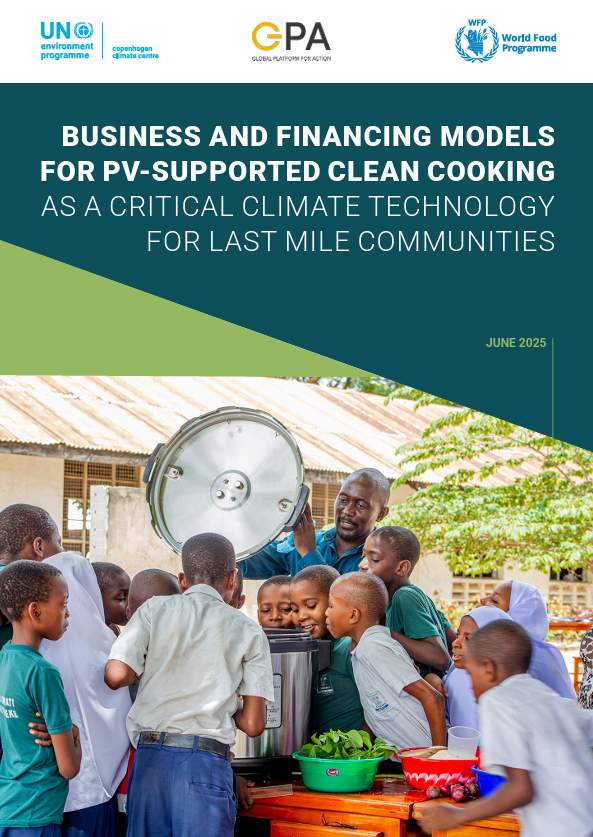A new report provides an actionable set of business and financing options for low-carbon clean cooking access where it is most urgently needed.
Addressing both supply and demand-side barriers through innovative financing and business models, it shows how to unlock sustainable transitions in displaced, off-grid, and peri-urban communities, in alignment with national strategies, guided by the ‘leave no one behind’ principle of the SDGs.
In partnership with the World Food Programme (WFP) and the Global Platform for Action on Sustainable Energy in Displacement Settings (GPA), UNEP Copenhagen Climate Centre has published the new report for the multistakeholder SOLCO Partnership, highlighting innovative business and financing models to scale PV-supported clean cooking technologies in last mile communities.
Titled “Business and Financing Models for PV-Supported Clean Cooking as a Critical Climate Technology for Last Mile Communities,” the report summarises various tried and tested means to provide affordable access to Tier 4+ clean cooking solutions – those that meet WHO air quality standards – through inclusive, scalable market approaches.
Solar supported clean cooking: A viable and essential climate technology
With a particular emphasis on solar electric cooking technologies (eCooking), the report highlights that declining solar PV costs and advances in appliance efficiency have made PV-supported clean cooking a viable and essential climate technology for developing countries. However, high upfront costs, limited access to financing, and market fragmentation continue to hinder uptake in underserved and off-grid areas.
The report outlines a range of innovative financing strategies including blended finance, results-based financing, pay-as-you-go (PAYGO) models, and carbon and outcome-based finance. It introduces pioneering business models such as “cook-to-earn,” which leverages IoT-enabled devices to pay households directly for emissions reductions, and peer-to-peer lending, which connects households to diaspora and impact investors via digital platforms.
A call to action for clean cooking
Developed under the SOLCO Partnership – a collaborative platform launched at COP28 under the Global electric Clean Cooking Coalition (GeCCo) – the report brings together the expertise of UNEP Copenhagen Climate Centre, GPA, WFP, the Clean Cooking Alliance, MECS/GeCCo, Last Mile Climate, and SEI Oxford. Additional contributions came from a wide range of partners including SEforALL, UN-Habitat, FAO Uganda, Mercy Corps and the Danish Refugee Council. The report also aligns with the work of the Household Energy Hub at the Climate and Clean Air Coalition (CCAC).
The report is a call to action for donors, governments, and private investors to support the deployment of high-integrity, net-zero clean cooking solutions that align with national climate commitments and improve livelihoods for millions.
